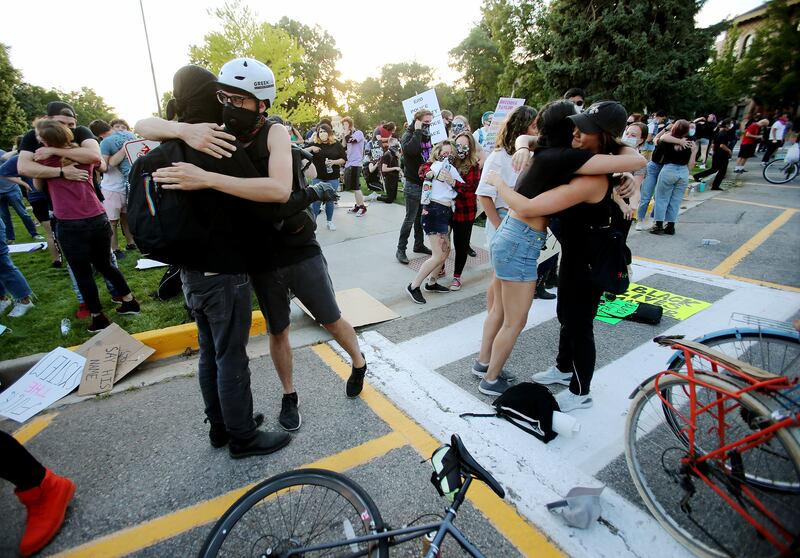As a physician committed to healing and inclusion, it’s been painful to see sickness and injustice spread to pandemic levels.
Our cities have been ripped apart by incidents of violence and death. The entire nation has seen the recent deaths of George Floyd and others, plunging our nation into deeper division and polarization.
Sadly, the understandable anger and despair so many are feeling has also led some to answer violence with more violence. The answer to violence, including the violence of prejudice and racism, lies in peaceful protest, and standing up against unjust ways.
Our call is to see the value of every human being, to protect the dignity and sanctity of all life and to give voice to love and life. Rather than war, hate and division, we need a passion for peace, love and unity. Human beings can be agents of change and transformation — to bring healing to the sick and suffering, peace in the midst of violence and hatred and unity in our broken and divided world.
As we strive to stop the spread of the COVID-19 pandemic, there are those among us who have the added burden of overcoming inequalities in our economic, political, legal and social structures every moment of their lives.
For generations, Black Americans and other minorities have faced not just personal acts of ill will based in prejudice, but entire systems designed by and for the benefit of one race at the expense of another. Growing up near Detroit, I witnessed and felt the strain of systemic change; many of my classmates and neighbors dealt with racism, sexism and the health effects of systemic prejudice each and every day. As a single parent, my mom drove a school bus. In 1970, we were bused to accomplish desegregation. My mom endured violence from people banging on her bus door in protest. She was a voice for equality and showed it through her tireless work keeping children safe and getting them to equal education.
My upbringing in Pontiac was diverse, scary at times, and made me into the person I am today. Hard-working. Compassionate. Inclusive. Connecting with others from other ethnic backgrounds was part of our upbringing, and integral to grasping the racism we all faced. My mom helped me learn that we are all created equal in God’s image and deserve the same treatment and access to opportunities, regardless of color.
Black Americans experience and die from chronic health conditions at earlier ages than white Americans and often face greater bias at the point of care. Black Americans are dying from the effects of COVID-19 at a rate 2.4 times that of white Americans. I have worked in Magna, an underserved community, my entire career, in large part due to my personal grasp of issues people face when they have limited resources. For some of my patients, having to choose between buying medicine or groceries is an excruciating reality. No one wants to see their children go hungry.
Racism is not a thing of the past or simply a political issue to be debated when convenient. It is a real and present danger. It is universal. We cannot turn a blind eye to these atrocities and yet still profess to respect every human life. We must show love, mercy, compassion and justice in all circumstances. Doing the right thing is not always easy, nor convenient.
Silence and indifference are complicit in the death of so many lives due not only to that of George Floyd, but also other people of color, the elderly and far too many others. We simply cannot remain silent. We must support those who engage in peaceful and lawful activities and stand against brutality from wrongdoers. We must all contend for social justice.
Change starts with you and me. Reach out to someone outside of your comfort zone, grow a bond, see their point of view and “do life” together. Don’t jump to “fixing the problem” until you can truly see — and perhaps feel — their point of view.
Overcoming racism can occur when we plant seeds of love with each other. Let’s use the recent crises to strengthen social connection and our health in meaningful ways today.
Brian Zehnder, MD, is a family physician, former Utah state senator, and current medical director of the Exodus Healthcare Network in Magna. He can be reached at brian@votebrianz.com

